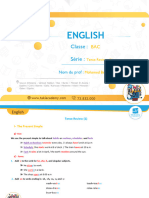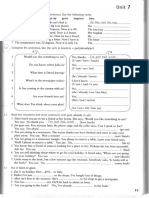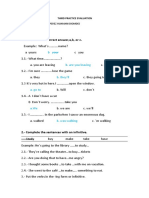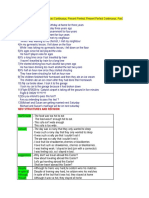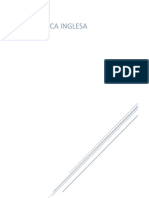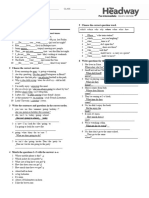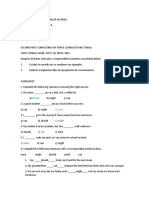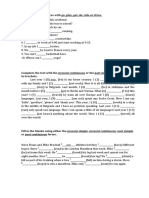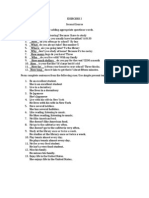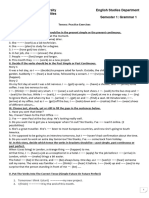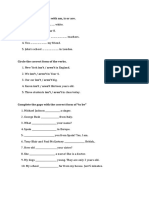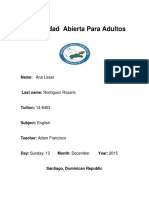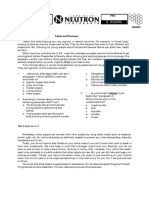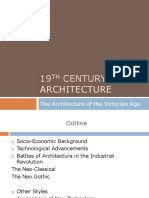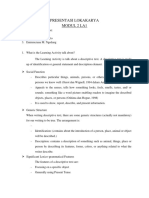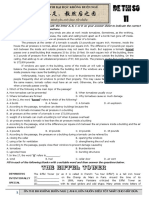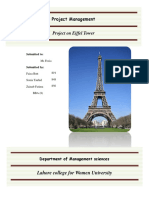METU/SFL Fall 2024
DBE
Extra Practice 201 GROUP
(Answer Key)
PRACTICE 1. Fill in the blanks with the correct form of the verbs: Past Simple or Present Perfect.
1. I lost (lose) my keys last night, so I had to call my flat mate.
2. I have lost (lose) my keys. Can you help me look for them?
3. I have visited (visit) Paris three times.
4. Last year, I visited (visit) Paris.
5. Sorry, I have missed (miss) the bus, so I am going to be late.
6. This morning, I missed (miss) the flight. I couldn’t go to my meeting.
7. Last month, I went (go) to Scotland.
8. I have been (be) to Japan twice.
9. Have you ever swum (swim/ever) in the ocean?
10. I'm sorry, John isn't here right now. He has gone (go) to the shops.
11. We finished (finish) this book last week.
12. I have finished (finish) my exams finally, and I'm so happy.
13. Yesterday, I went (go) to the library, the post office and the supermarket.
14. I drank (drink) three cups of coffee yesterday.
15. Have you done (do) your homework?
16. Did you do (do) your homework at the weekend?
17. A: Are you a fan of ‘‘Star Wars’’?
B: I don’t know. I have never seen (see/never) any “Star Wars” movies.
18. Chris arrived (arrive) in New York two weeks ago.
19. She has already written (write/already) the e-mail, but she doesn’t know how to send it.
20. My sister has never seen (see/never) the ocean.
PRACTICE 2. Complete the paragraph with the correct form of the verbs in parentheses.
(1) Have you ever been (you/ever/be) to Paris? If your answer is “Yes” to that
question, it means you (2)have seen (see) the Eiffel Tower, too. Gustave Eiffel (3)
built (build) it between 1887 and 1889. When he finished the tower, the people (4)
didn’t like (like) it at all and criticized it badly. However, today it is the symbol of
Paris, and millions of people (5) visit (visit) it every year.
The tower (6) has (have) three platforms. On the second platform, there is an extremely
expensive restaurant that is called the Jules Verne, and on the top platform, there is a
bar, a souvenir shop and Gustave Eiffel’s office.
They (7) paint (paint) the metal tower every seven years to protect it from oxidation. It (8) takes (take) two
years to paint the whole tower. They (9) are going to paint/will paint (paint) it again next year.
***
Susan: (1) Have you ever tried (you/try/ever) Mexican food?
Mark: As a matter of fact, yes.
Susan: Really? When (2) did you eat (you/eat) it?
Mark: I (3) went (go) to Mexico two years ago with my friends, and I (4) tried (try) many Mexican
specialties, such as tacos and enchiladas there. They (5) were/are (be) a bit hot but very delicious.
1
� Susan: (6) Did you try (you/try) mole sauce when you were in Mexico?
Mark: No. I (7) have never heard (hear/never) of it. What’s that?
Susan: It’s a kind of sauce made from chocolate, chilies and many spices.
PRACTICE 3. Read the interview below, and complete the interview with the correct form of the verbs in
parenthesis.
Interviewer : Today, we are asking a few people about success. Are you successful? Do you
know a successful person? What makes someone successful?
Carlos : My friend Marta is quite successful. She (1) wanted (want) to have a restaurant
when she was a teenager, and recently she (2) has achieved (achieve) her goal.
Three years ago, she (3) bought (buy) a restaurant. She (4) has had (have) success
a successful business since then.
Interviewer : How long (5) have you known (you/know) Marta?
Carlos : We (6) met at college. I guess I (7) have known (know) her for more than 10 years.
Interviewer : (8) Has she always been (be/always) interested in food?
Carlos : Yes, she says that it (9) has been (be) her only interest since she was a child.
Annie : Well, I think my parents are very successful people. They (10) haven’t had (have)
any problems for years. They (11) have raised (raise) five happy, successful
children. In fact, my youngest brother (12) has already graduated
(graduate/already) from college, and my older sister (13) has just married
(marry/just).
Ian : Well, I (14) have never thought (think/never) about it. I guess I (15) haven’t
achieved (achieve) anything yet. I’m very happy, though. That’s my idea of
success.
PRACTICE 4. Fill in the blanks with “mustn’t” or “don’t/doesn’t have to.”
1. There is another bus later, so we don’t have to get on this one.
2. You mustn’t smoke in a petrol station. It’s dangerous.
3. You don’t have to pass a test to ride a bicycle.
4. You mustn’t be late for class, or the teacher will be angry.
5. Turkish citizens don’t have to get a visa to travel to the Turkish Republic of Northern Cyprus.
6. Your sister doesn’t have to buy the workbook for this course. She can borrow mine.
7. Shops mustn’t sell cigarettes to children.
8. You don’t have to be a great chef to make an omelet.
9. When you have a small child, you mustn’t leave small objects lying around.
10. This book is optional. You don’t have to read it if you don’t want to.
2
�PRACTICE 5. Rewrite the sentences by using the CORRECT modal or modal like expression in brackets. Do
NOT change the meaning, and do NOT omit information.
1. It is unnecessary for students to bring their books. (need to)
Students don’t need to bring their books.
2. It is a good idea for pet owners to take their pets to the vet twice a year. (should)
Pet owners should take their pets to the vet twice a year.
3. It is necessary to subscribe the library before you start borrowing books. (must)
You must subscribe the library before you start borrowing books.
4. It is not a good idea to go outside without a coat as it is extremely cold. (must)
You shouldn’t go outside without a coat as it is extremely cold.
5. It is not necessary for university students to wear a uniform at school. (have to)
University students don’t have to wear a uniform at school.
6. It is a good idea to reserve a table before you go to that restaurant. (should)
You should reserve a table before you go to that restaurant.
7. Do I need a different driving license for a motorbike? (have to)
Do I have to get a different driving license for a motorbike?
8. Is it necessary for her to attend the meeting? (have to)
Does she have to attend the meeting?
9. It is not a good idea to sit in the sun like this. We will get sunburnt. (should)
We shouldn’t sit in the sun like this. We will get sunburnt.
10. It is not necessary for her to get a bank loan because her business is doing well. (need to)
Her business is doing well, so she doesn’t need to get bank loan.
PRACTICE 3. Fill each gap with ONE WORD only. Contractions such as “don’t” and “isn’t” count as one word.
Have you (1) ever seen the Pyramids? Have you been (2) to Rome? Nowadays, people can hear such questions
more often (3) because/as today’s world is getting smaller, and people are traveling around the globe more
than ever. They are looking for new places to see and new things to do. They want adventure. Some people
want to ride a camel (4) in Egypt, and some others want to try hot-air ballooning over Cappadocia. Travelers
all over the world would (5) like to try many other activities, too. All they need is time and money – a (6) lot of
it! – and a sense of adventure. (7) However, in my opinion, a person does not (8) have to go to a faraway place
to have a great holiday. One can just spend the day walking in the woods (9) or watch the sunset over the sea.
These can be wonderful adventures, (10) as well. In (11) addition, they are a lot more affordable.


